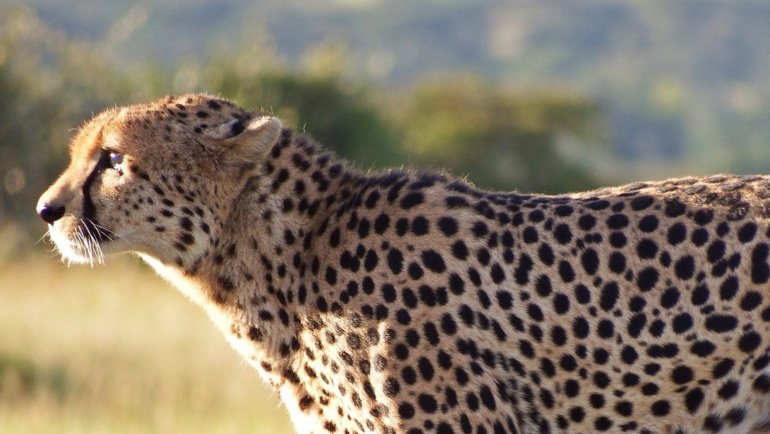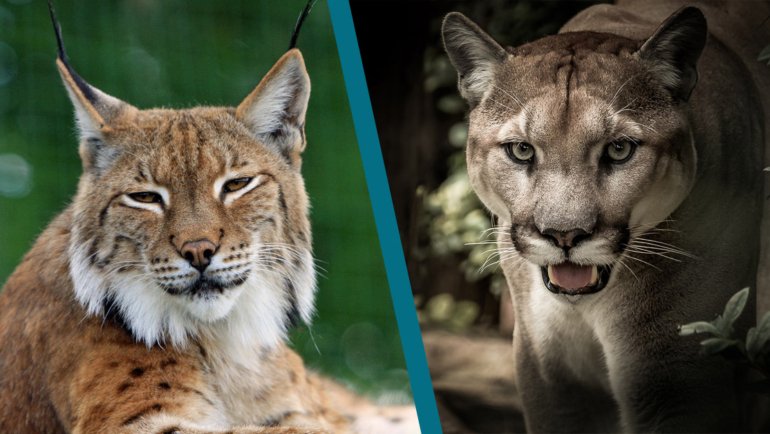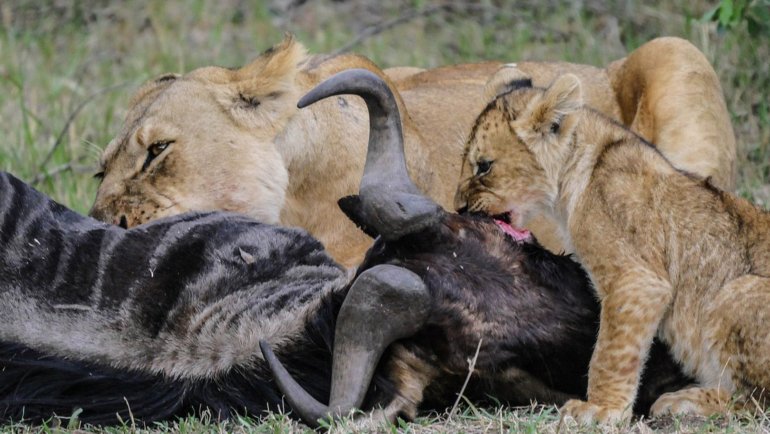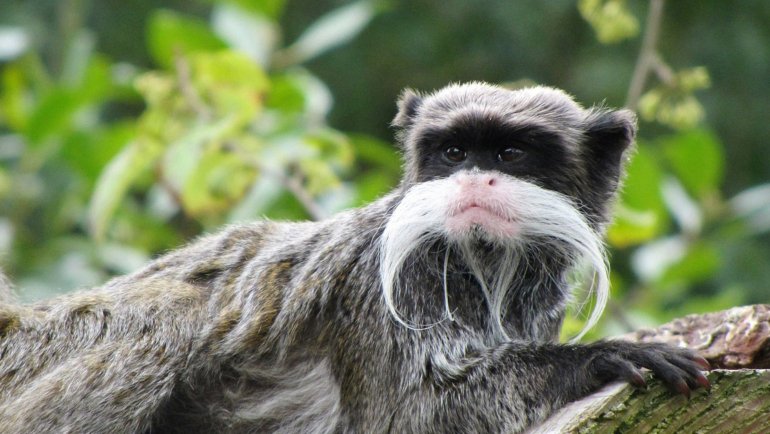Raccoons are highly adaptable animals that thrive in various habitats, including forests, grasslands, wetlands, and urban areas.
Their physical and behavioral traits, as well as their opportunistic feeding habits, have helped them to survive and even thrive in changing environments.
However, one of these mammals’ most frequently asked questions is whether they can swim. Therefore, this article aims to address this query by providing scientifically proven information on their relationship with water bodies.
Can Raccoons Swim? Are They Good Swimmers?
Yes, raccoons are good swimmers known to be quite proficient at it. In fact, swimming is a natural ability for raccoons, and they are often found swimming in rivers, lakes, and other bodies of water.
Raccoons have several physical adaptations that make them good swimmers. Their fur is thick and water-resistant, which helps to keep them warm and dry while swimming. Additionally, their paws are partially webbed, which allows them to paddle through the water more efficiently.
Raccoons are also very adaptable and intelligent animals, which allows them to learn quickly and adapt to new environments. It means that even if they encounter a new body of water, they will likely quickly learn how to swim.
Do Raccoons Like Water?
Yes, raccoons are known to enjoy being in and around water. They have partially webbed paws that help them swim more efficiently, and they can stay underwater for several minutes.
Raccoons are also opportunistic feeders and will search for food in streams, rivers, and other bodies of water, so they have adapted to be comfortable in aquatic environments.
Additionally, raccoons are known to play in the water and can often be seen dunking their food or toys into the water before eating or playing with them.
Also read: Are Raccoons Rodents? Here’s A Complete Answer
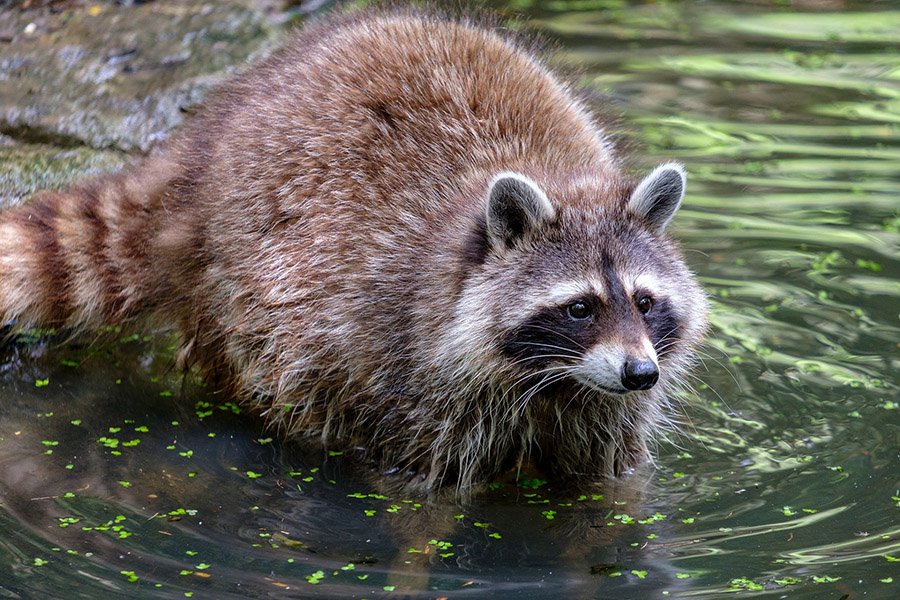
Can Raccoons Swim Underwater?
While they are not typically considered aquatic animals, raccoons can swim long distances and hold their breath underwater for several minutes. For instance, raccoons have been observed to dive underwater up to five feet (1.5 meters) deep to avoid predators or acquire food.
They also wash their food in water, possibly requiring them to dive underwater briefly. However, they typically do not spend extended periods underwater like aquatic animals such as otters or beavers.
How Long Can Raccoons Hold Their Breath?
Raccoons are semi-aquatic animals capable of holding their breath underwater for several minutes. Studies have shown that adult raccoons can hold their breath for up to 15 minutes while diving underwater, while younger raccoons may only be able to hold their breath for 1-2 minutes.
However, it is essential to note that raccoons are not adapted for long-term underwater survival, and prolonged submersion can be dangerous.
How Fast Can Raccoons Swim?
Raccoons are capable swimmers and can swim at an average speed of 2-3 miles per hour (3-5 kilometers per hour) for short distances of approximately three miles (4.83 kilometers).
It is also vital to note that their swimming ability can vary depending on factors such as age, size, and the conditions of the water.
Why Do Raccoons Get In The Water and Swim?
Raccoons are omnivores and can eat various foods, including fish, crayfish, frogs, and other aquatic animals they can catch in the water. Therefore, one of the main reasons they get in the water and swim is that they use the water body as a food source.
In addition to food, raccoons also proceed to water bodies like lakes and rivers as a haven when escaping predators. Since they are excellent swimmers, these mammals can easily escape many predators in the water, such as coyotes, dogs, and even humans.
Raccoons may also swim to cool off on hot days. They have a thick coat of fur that can make them feel hot and uncomfortable, so swimming in cool water helps them regulate their body temperature.
Also read: Do Raccoons Nest in Trees? What You Need to Know
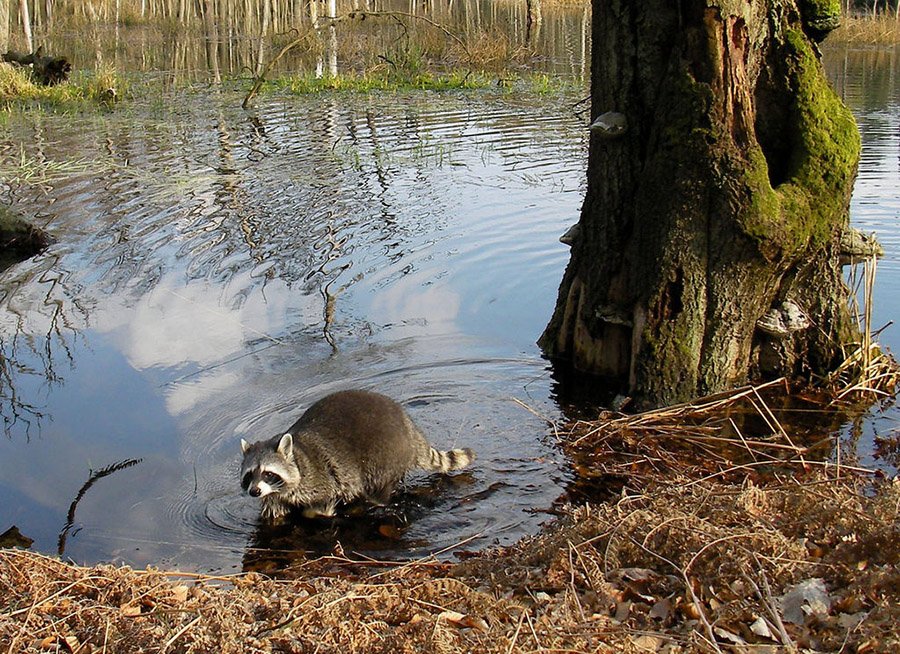
What To Do If A Raccoon Is Swimming In Your Pool?
If a raccoon is swimming in your pool, it’s essential to take appropriate measures to ensure your and the animal’s safety. Here are a few steps you can take:
Stay away: If you see a raccoon swimming in your pool, staying away from the animal is crucial. Raccoons can be aggressive and may attack if they feel threatened. Keep a safe distance and avoid making loud noises or sudden movements that could startle the animal.
Secure the area: If possible, block off access to your pool area to prevent other animals from entering. You can use fencing, netting, or other barriers to keep animals out.
Turn on the pool lights: Raccoons are generally attracted to dark places since they are nocturnal animals. Therefore, turning on the pool lights will help to scare them away.
Provide an exit point: If your pool does not have stairs or an exit point, you can use a large piece of wood or a ramp to create one. Placing it at the pool’s edge will enable the raccoon to utilize this option as its escape route.
Call animal control: Contact your local animal control agency or a wildlife removal service to report the raccoon and request assistance. They can safely remove the animal from your pool area and release it into the wild.
Clean the pool: After removing the raccoon, it’s essential to thoroughly clean your pool to remove any bacteria or parasites the animal may have left behind. Use a pool net to remove debris, and shock the pool with chlorine to kill any remaining bacteria.
By taking these steps, you can ensure the safety of yourself and the raccoon while protecting your pool and your family from potential health risks.
Final Thoughts
As we’ve already seen, raccoons are highly adaptable animals capable of thriving in various environments, including both land and water. Several adaptations make them well-suited for swimming, such as water-repellent fur, webbed feet, and a strong sense of balance.
In fact, these species can swim for several miles without tiring, and they are known to hunt for food in the water, such as fish, crayfish, and frogs.


